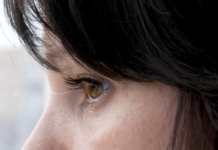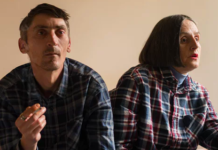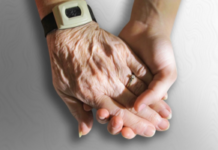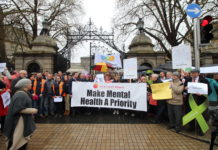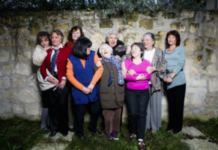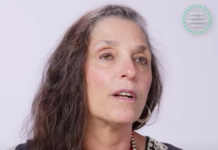Study Highlights Importance of Social Interactions in Psychosis Recovery
Study finds frequency of social interactions predicts long-term remission in first-episode psychosis.
Psychologists To Livestream Summit on Global Interdisciplinary Health Care
The American Psychological Association is hosting a two and half day interdisciplinary summit on November 3rd through 5th entitled Global Approaches to Integrated Care: Translating Science And Best Practices Into Patient-Centered Health Care Delivery. The summit features presentations and discussions on social determinants of health, demographics, culture and health disparities, and patients’ perspectives, among others. It can be livestreamed here.
Listening to, Rather Than Trying to Fix, My Suicidal Wife
From The Guardian: One man shares how listening to his wife when she experienced suicidality, rather than rushing to action or attempting to dissuade her...
How to Reach Out to Someone who is Struggling
In this piece for On Being, Omid Safi shares how an old Middle Eastern story about a drowning man can teach us how to offer...
5 Ways to Address a Mental Health Crisis Without Calling 911
From The Body Is Not An Apology: For many people, calling the police during a mental health emergency can result in brutality. Here are five...
Challenging the Ongoing ICD 10 Revision: How You Can Help
Mental health policy does not sound exciting. It is - you’ll just have to take my word for it-, but even if you don’t, you might agree with me that it’s crucial. Mental health policy shapes mental health legislation, and mental health legislation shapes issues such as consent, access, equal opportunities and de-institutionalisation, to name but a few. Influencing policy is key to reframing the debate around mental health, and changing the reality on the ground for people with lived experience. With this in mind, here is an introduction to Mental Health Europe’s work on the revisions to ICD 10, and a call to action, for you to get directly involved in this international debate.
Fighting the fog of Mental Illness
In this special report for the Journal Sentinel, Meg Kissinger tells the story of Amanda Farrell, a woman labeled severely mentally ill who eventually recovered...
Eat Breathe Thrive: Chelsea Roff on Eating Disorders, Trauma, and Healing with Yoga and...
Chelsea Roff is the Founder and Director of Eat Breathe Thrive (EBT), a non-profit with an inspired mission to bring yoga, mindfulness, and community support to people struggling with negative body image and disordered eating. I reached out to Chelsea to learn more about her life and organization, which she writes, “…is like AA for people with food and body image issues, plus yoga and meditation.” Chelsea shared her journey from life as a patient to yogi, author, and innovative community organizer. With her permission, you can find this interview below.
Inside Croatia’s Pioneering Mental Health Center
From The Guardian: The oldest asylum in the Balkans has now been transformed into an unlocked mental health center. The patients have begun living in...
Psychosocially Oriented Psychologists Struggle Against the Medical Model
Interviews with psychosocially oriented psychologists demonstrate their experiences of discomfort with the hegemony of the medical model in their place of work and the conflicts that arise when they attempt to provide alternatives.
“Reducing Future Suicide Attempts by Forging Connection”
A new study published Tuesday in PLOS Medicine may offer evidence for an intervention for people who have already been hospitalized for a suicide attempt. The...
Parachute NYC Peer Support Program Presents Challenges and Opportunities
Anthropologists study Parachute NYC to identify challenges and opportunities for implementing peer support and Open Dialogue practices.
Human Jobs in the Future Will Require Emotional Labor
From Aeon: As technological change reduces the demand for human jobs in scientific and cognitive fields such as software engineering, biotechnology, and advanced manufacturing, future...
First-ever Peer-supported Open Dialogue Conference
-On March 11, 2015, the NHS Foundation and three other Trusts are hosting a free conference to "take stock" after one year of Peer-supported Open Dialogue.
How to Integrate Culture into Mental Health Care
Researchers explore how culturally responsive services can create greater equity in mental health care.
Feminist Retirement Home in Paris Celebrates Aging
From Girl Talk HQ: A new feminist retirement home in Paris has been built to celebrate aging and counter the societal narrative that growing old is...
Why Some Children with Depressed Parents Show Resilience
Children of parents who suffer from depression have a severely heightened risk of mental health problems, but new research points to several factors that seem to strengthen young peoples’ resilience and predict good mental health.
Collaborative Care Effective for Older Adults with Depressive Symptoms
A new study suggests that depressive symptoms in older adults can be improved with non-invasive behavioral activation techniques. These approaches appear to have a preventative effect, serving to prevent further depressive symptoms from developing.
Victim Blaming: Childhood Trauma, Mental Illness & Diagnostic Distractions?
Why, despite the fact that the vast majority of people diagnosed with a mental illness have suffered from some form of childhood trauma, is it still so difficult to talk about? Why, despite the enormous amount of research about the impact of trauma on the brain and subsequent effect on behaviour, does there seem to be such an extraordinary refusal for the implication of this research to change attitudes towards those who are mentally ill? Why, when our program and others like it have shown people can heal from the effects of trauma, are so many people left with the self-blame and the feeling they will never get better that my colleague writes about below?
The Case Against Empathy
In this interview for Vox, Yale psychologist Paul Bloom provides a critical perspective on empathy and explains why empathy may be harmful in the long run.
"My beef...
“Programs Expand Schizophrenic Patients’ Role in Their Own Care”
Benedict Carey at the New York Times covers the push for new programs that emphasize supportive services, therapy, school and work assistance, and family education, rather than simply drug treatment.
Traditional South African Healers Use Connection in Suicide Prevention
Study finds that traditional healers in South Africa, whose services are widely used by the country’s population, perform important suicide prevention work.
“A Compassionate Approach Leads to More Help, Less Punishment”
“Published in the journal PLoS ONE, a new set of studies suggests that compassion—and intentionally cultivating it through training—may lead us to do more to help the wronged than to punish the wrongdoer. Researchers found compassion may also impact the extent to which people punish the transgressor.”
Mental Health Industry Should Embrace Choices Beyond Drugs
In this video for NowThis, Yana Jacobs critiques the mental health industry standard of prescribing drugs as the first-line treatment for "mental illness." She emphasizes...
Study Confirms Higher Suicide Risk for Sexual Minority Adolescents
Researchers report that sexual minority adolescents have considered, planned, and attempted suicide substantially more than their heterosexual peers.





